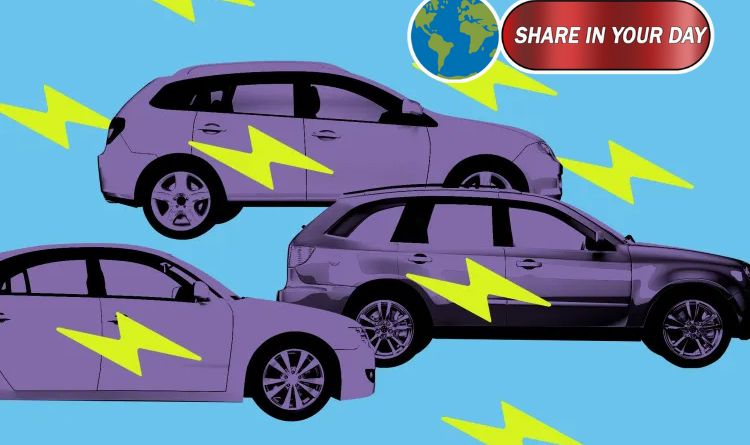Ford and GM Retreat from EV Tax Credit Extension After Political Scrutiny
Detroit, MI — October 11, 2025
Ford Motor Co. and General Motors have quietly walked back their attempts to extend the federal $7,500 electric vehicle tax credit via lease programs, after intense political scrutiny and mounting pressure from Republican lawmakers. The reversal, first reported by Reuters, marks a significant shift in strategy as the American auto giants recalibrate their approach to EV sales amid changing federal policy.

Just last week, both automakers were exploring creative avenues to keep the tax credit flowing for customers, even after its expiration on September 30. Their solution? Leverage their own finance arms to purchase EV inventory from dealerships, then offer leases that embedded the $7,500 savings directly into the monthly payments — essentially passing the benefit along to consumers through the back door.
It was a short-term maneuver designed to maintain momentum during a crucial sales period. But it’s now been abandoned.
From Strategy to Scrutiny
The plan collapsed swiftly. According to Reuters, GM was the first to withdraw, pulling the plug on Wednesday, with Ford following soon after. The decision came in response to concerns raised by Republican Senators Bernie Moreno (R-Ohio) and John Barrasso (R-Wyoming), who denounced the effort as a “loophole” that violated Congressional intent.
In a letter to the U.S. Treasury Department, the senators characterized the leasing workaround as a misuse of the tax code, even though Ford and GM reportedly cleared the plan with the Internal Revenue Service prior to launch.
“This is a total violation of Congressional intent by these nefarious actors,” the senators wrote, according to sources cited by Reuters.
A Critical Moment for EV Sales
The now-defunct plan was aimed at cushioning the blow for prospective EV buyers after the Section 30D tax credit for leased electric vehicles officially expired on September 30, 2025. Both companies had seen a surge in EV sales in July and August, as consumers rushed to secure deals before the cutoff.
Industry analysts now warn that the momentum could stall sharply.
“Without the credit, the price competitiveness of EVs is going to take a hit,” said Emily Carter, senior analyst at EV Insights. “We expect a significant short-term drop in EV leases, especially in the mid-market segment.”
Different Approaches Across the Industry
Other automakers, including Hyundai and Stellantis, responded to the tax credit phase-out with direct-to-consumer cash incentives, effectively absorbing part of the cost themselves to keep lease and purchase prices attractive.
In contrast, Ford and GM’s finance-based workaround appeared more complex — and ultimately more controversial.
Under the plan, Ford Credit and GM Financial would temporarily acquire EVs in dealer inventory before the September 30 deadline, then re-lease them to customers with the tax benefit factored into monthly payments. While it complied with IRS guidance, the optics of the maneuver drew bipartisan scrutiny in Washington.
Ford Responds with New Incentives
Following the fallout, Ford issued a statement on October 10 to clarify its revised strategy. In comments shared with the press, Ford spokesperson Marty Günsberg confirmed that the automaker will no longer pursue the tax credit workaround.
“Ford will not claim the EV tax credit but will maintain the competitive lease payments we have in the market today to continue providing customers with more affordable electric vehicle options,” Günsberg said.
“For customers who want to purchase an electric vehicle, Ford Credit continues to offer 0 percent financing for 72 months and other incentives.”
Ford’s messaging now mirrors a broader industry trend: shifting focus from tax credits to promotional financing, in a bid to keep EV adoption moving forward despite policy headwinds.
What’s Next for EV Incentives?
The expiry of the $7,500 federal lease credit — and the backlash against creative extensions — raises questions about how automakers can continue driving EV adoption in a maturing market.
Congress remains sharply divided on the future of green energy subsidies, and with the 2026 midterm elections looming, policy uncertainty is likely to persist.
In the meantime, carmakers are expected to lean more heavily on in-house incentives, inventory pricing strategies, and dealer-level promotions to maintain competitiveness — especially as EV production ramps up and supply-chain costs gradually fall.
Bottom Line
The collapse of Ford and GM’s workaround to extend the EV tax credit underscores the fragile intersection of federal policy and industry innovation. While automakers were attempting to maintain affordability and momentum in the growing electric vehicle market, political pushback proved stronger.
With the $7,500 tax credit now in the rearview mirror, the industry must look ahead — and adapt once again.




